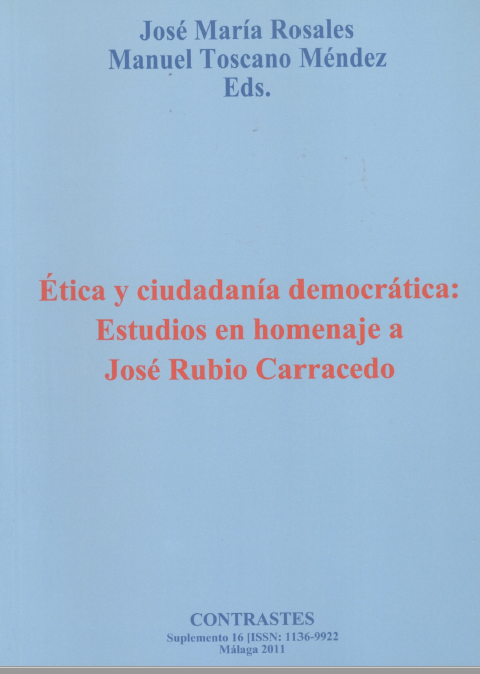The deferral of ideals
Abstract
The history of politics is a succession of postponements. Ideals are first and foremost relegated. There is hardly a single one that is not postponed until the appropriate moment, invariably situated in the future. When the time seems near to make them a reality, the situation, the reasons of state, the imperatives, the implacable economic logic, or any other refuge of power to avoid the unpostponable makes it advisable to put them off until later, and so on indefinitely. Political ideals are like Kafka's heroes. Both are victims of endless procrastination. Josef K., the central character in Der Prozess, becomes entangled in a lawsuit without being able to find out what crime he is accused of or to confront the court that is to try him; K., the protagonist of Das Schloss, fails to enter the castle to which he has been summoned and dies without being recognised by the warden who rules it; the same happens to Karl Rossman, the main figure in his first novel, and to the heroes of his short stories. The Jewish writer puts his characters in intolerable situations that condemn them to fail to reach their destiny. Politics does the same with ideals. He turns them into dashed hopes or promises that are never fulfilled.
Downloads
Metrics
Publication Facts
Reviewer profiles N/A
Author statements
Indexed in
-
—
- Academic society
- N/A
- Publisher
- Universidad de Málaga
Downloads
Published
How to Cite
Issue
Section
License
This journal provides immediate free access to its content under the principle of making research freely available to the public. All content published in Contrastes. Revista Internacional de Filosofía, are subject to the Creative Commons Attribution-NonCommercial-ShareAlike 4.0 license whose full text can be found at <http://creativecommons.org/licenses/by-nc-sa/4.0>
It is the responsibility of the authors to obtain the necessary permissions of the images that are subject to copyright.
Authors whose contributions are accepted for publication in this journal will retain the non-exclusive right to use their contributions for academic, research and educational purposes, including self-archiving or repository in open access repositories of any kind.
The electronic edition of this magazine is edited by the Editorial Service of the University of Malaga (Uma Editorial), being necessary to cite the origin in any partial or total reproduction.






5.png)
